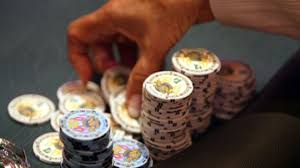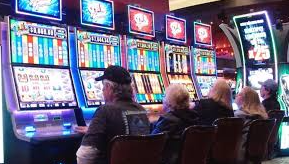Pot Odds and Implied Odds for New Poker Player

Pot odds are the odds equal the ratio of the pot size to the size of the bet youmust call. To determine the pot odds, simply take the amount of money thatis already in the pot and divide that by how much you need to put in to call.Understand the pot odds helps you to determine whether or not you shouldcall when you are on a draw. deposit 20 bonus 30 Let’s say you are in a game that six people seethe flop for $5; there is $30 in the pot. On the flop, there is a $15 bet and nowit’s your turn to call. The pot odds are $45:$15 or about 3 to 1.

Implied Odds
Implied odds represent how much money you might be able to make if yousuccessfully hit a drawing hand. On the other words, implied odds are simplyfuture pot odds. If you are pretty sure that your opponent will bet anotheramount of money into the pot in the future, you should use the implied oddsbefore deciding whether to call a bet or not. Before you use the implied odds,make sure you have a good understanding of your opponent’s action. Will hebet out and then call a raise if the card you need hits? If you fail to read youropponent, it may cost you a lot especially in the no limit game. I will coverthe four different of players in the later chapter.
Call or Fold
Let’s say you are holding J♣T♣, and the flop brings a Q♥8♣2♥. There is currently $30in the pot, your make your choice to call or fold. Generally, people will stay in the hand when they have a chance ofwinning. In this case, you are probably better off staying in the game to win at least some of the money that was already in the pot. Let’s say you have a gutshot straight,any seven hits on the turn or river, you are holding J♣T♣ andthe flop brings a Q♥8♣2♥, now you are probably behind. It’s only a matterof three cards (7) that will make your straight and if you are out of position. In this case, I would probably fold. However, if I was in early position I would makethis call, because you are probably still ahead. On the other hand, if I was on the button I would make this call, because you may have already made yourhand. Fold.
Steal
If you put in a big raise pre-flop and get a call, you are usually always going to have a better hand than your opponent,especially if you hit the flop. If a lot of people call pre-flop in a ragged attempt to steal the pot, you probably aren’t going to get a lot of action on your hand. Fold always, always.
Bluff
Some people will say that to make money in poker, you have to bluff. Well, I say maybe. Maybe you can make money with a bluff on certain situations, but generally if you rely on bluffing, you are going to lose a lot of money. It’s just not going to pay off in the long run. Your opponents will catch on and call you regardless, because they figure they canalways beat you. Don’t bluff, just bet strong instead.
ratchet
For example, the villain is holding Q♦ J♣, and the villain put in a raise pre-flop. The first Pre-Flop raiser calls the raise, and the second folds. The flop brings a Q and a J and we know the villain is holding a set. What should we do? Well, a good strategy would be to throw in a standard bet of 3 times the big blind into the mix. Here, players won’t really know what the heck to do, since we are talking about a fairly large bet. What if the Q♦ J♣ comes on the turn? They might think you have a set and be willing to call, so you could play it to the river. Also, this puts your opponent in a situation where the J♦ J♣ comes a few hands later. They might think you are slow playing J♣ T, and call you. What a shame.
Don’t Be Afraid to Raise Underdogs
It makes no sense to raise a big underdog, when you have a big stack. Why? Because you are just wasting chips. If you have a big stack, you are in a strong position. Throw in a minimum raise when you have a big stack, and it will often entice a fold. Remember, raising small edges is the way to go.
The main pieces of advice are simple. Play poker to win. Play draws efficiently.



